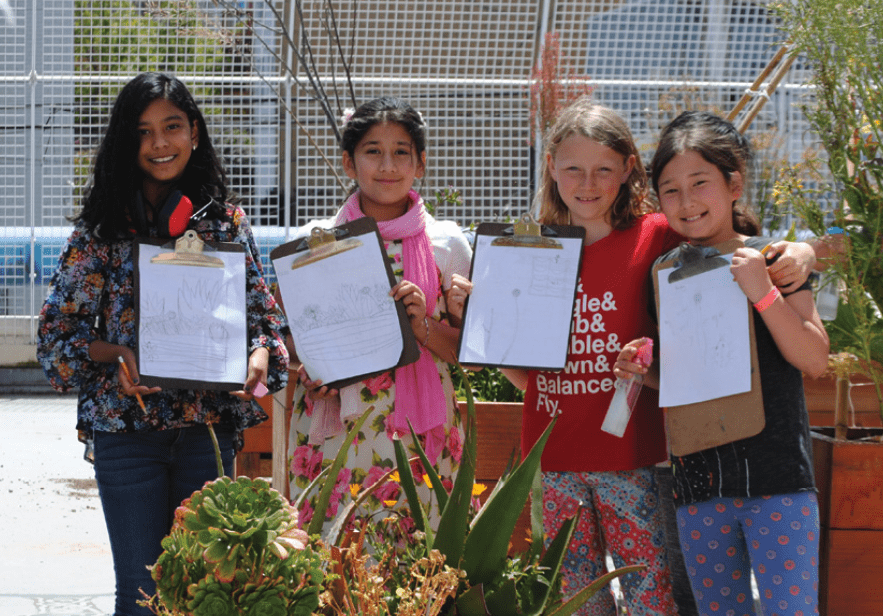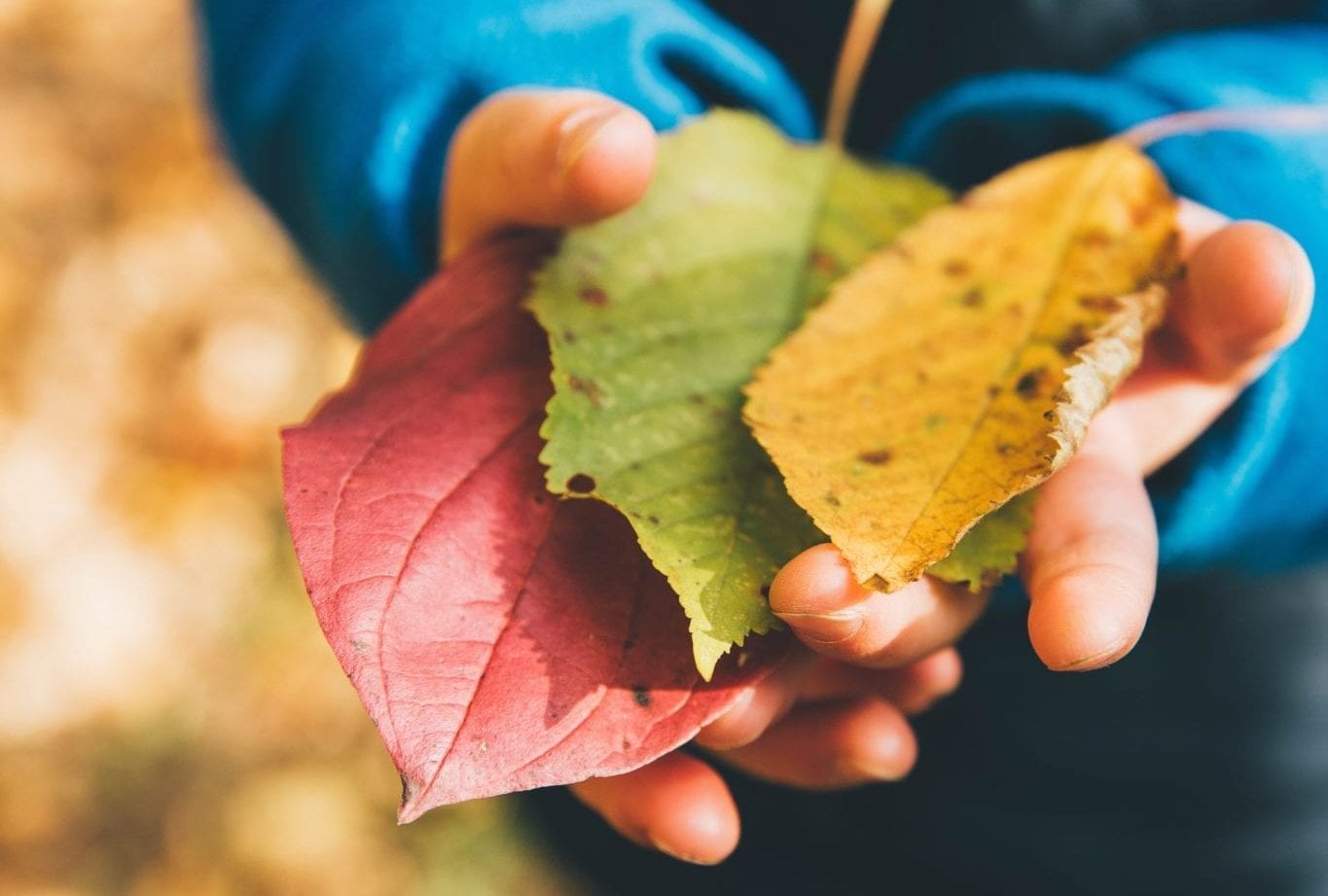
CAELI Resources
Check out our many resources provided to you by CAELI’s Leadership Council! This page provides access to the following resource types along with the audience(s) it best serves:
- Case Studies: CAELI members have put together a number of case studies that provide an in-depth overview of environmental literacy efforts at different scales— classroom, site, district, county, etc.
- Databases: These are CAELI efforts focused on providing access to partners and important data on the need and progress of efforts across the state.
- Community of Practice and Networks: CAELI innovation hubs and working groups host a variety of statewide communities of practice (COP) and networks to help advance environmental literacy across the state.
- Programs: CAELI members and leaders support a number of capacity building programs, such as knowledge-to-action fellowships, and in-person meet-ups.
- Toolkits and Advocacy Collaborations: CAELI working groups have developed toolkits that provide curated resources, practical advice, guidance, and information to support users in bringing environmental and climate action to their school communities.
- Webinars: CAELI innovation hubs and members of the Leadership Council have hosted webinars and videos that help raise awareness or provide training on key topics relevant to environmental literacy.
- Other Important Resources: Check out these other resources that are related to our work.
Other Important Resources: Check out these other resources that are related to our work.
Case Studies
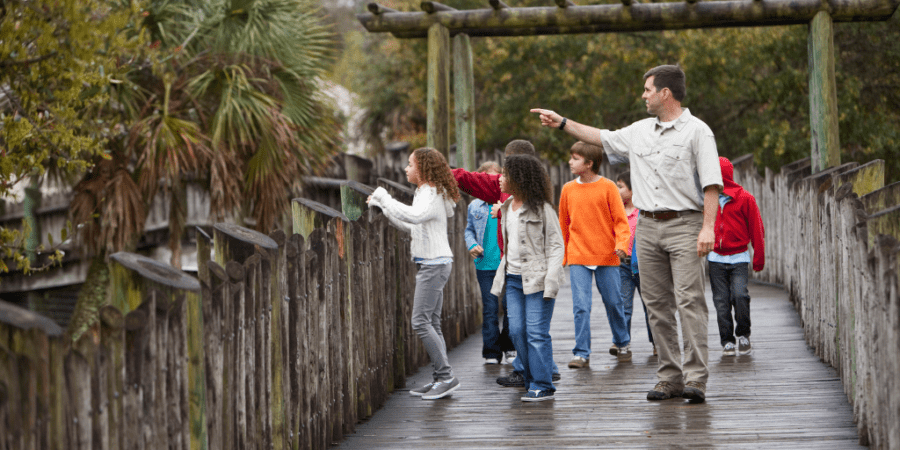
County Office of Education (COE) Leadership Case Studies (2022): CAELI’s COE Leadership Case Studies illustrate how the San Mateo County Office of Education and the Orange County Department of Education each took a unique systems approach to expanding access to environmental literacy and sustainability in their local contexts.
Audiences: Administrators, Students, Teachers
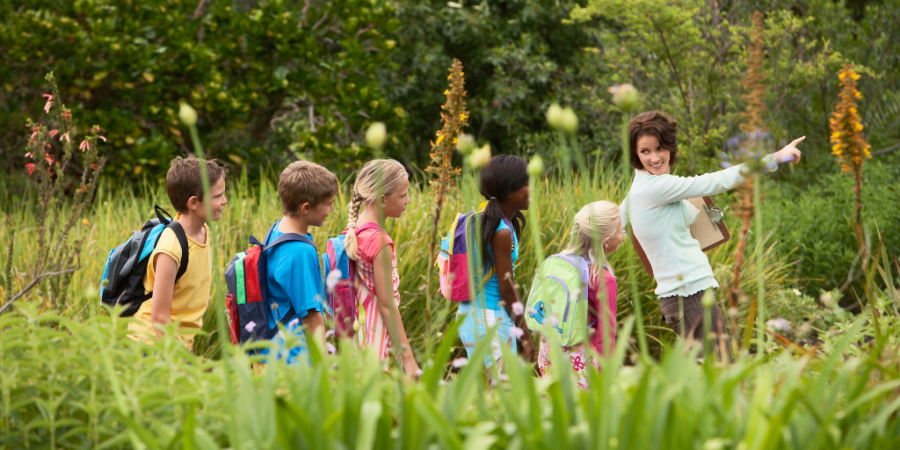
Alameda USD Case Study (2019): Learn how a district embraced environmental literacy planning as a key driver for education reform. This case describes how skillful and inspired district leaders, with the support of a unified set of partners, have set the foundation for environmental learning within their district.
Audiences: Administrators, Students, Teachers
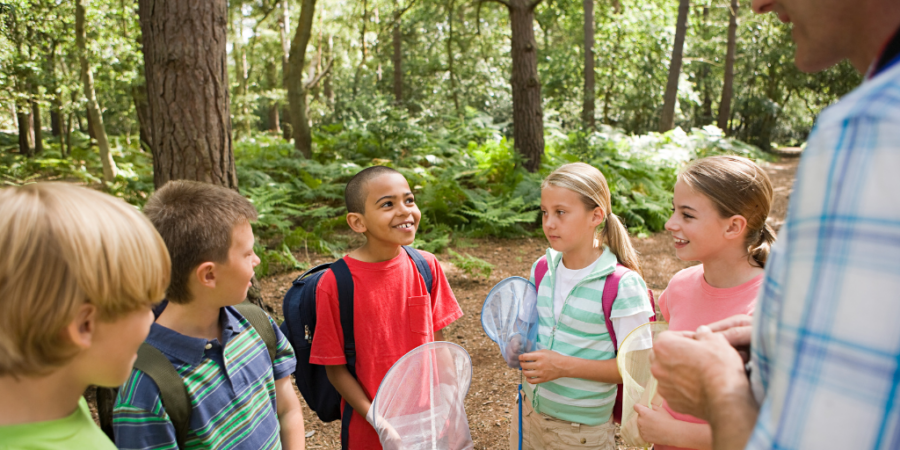
Anaheim and Montebello Case Studies (2019): Learn how districts have embraced teacher professional learning as a key driver for the implementation of environmental literacy in two parts—Anaheim’s Vision: Connecting Students to a Healthy Community, and Montebello’s Vision: Improving Student Achievement Through Equitable Access to Science Instruction.
Audiences: Administrators, Students, Teachers
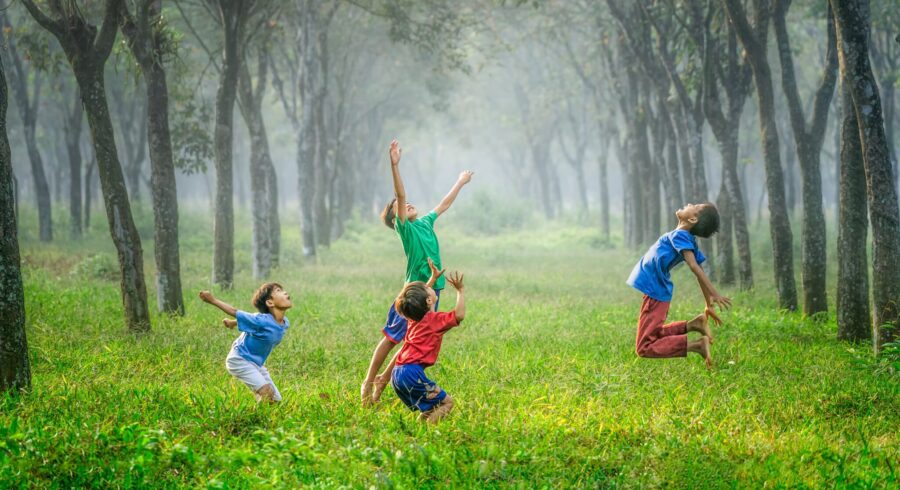
Rialto USD Case Study (2019): Rialto exemplifies a school district that is proceeding through a series of steps—not always linearly—to promote equitable access to environmental literacy for all K–12 students in the district. This case study documents how a handful of local champions and advocates, with a supportive statewide context and dedicated partners, enabled a district that was once underestimated to enter and win the 2019 Green Ribbon School District Sustainability Award from the U.S. Department of Education.
Audiences: Administrators, Students, Teachers
Databases
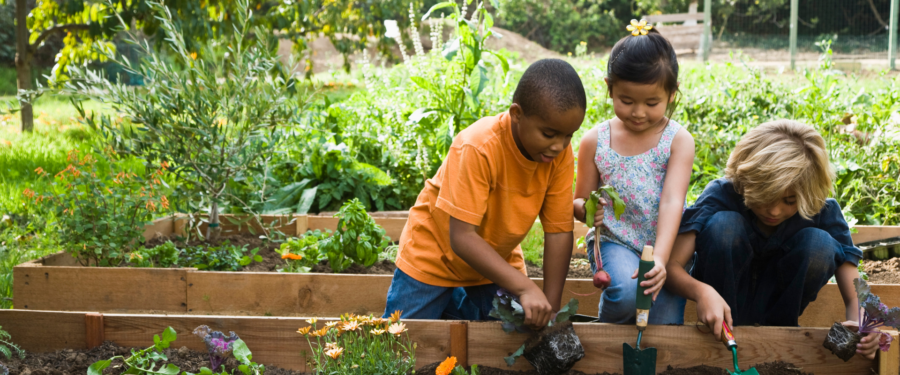
CAELI Partner Portal: The CAELI Partner Portal serves as a central directory for community-based organizations who offer environmental education programs (in-classroom, field trip, overnight, etc.) throughout the state. The purpose of this directory is to increase equitable access to impactful environmental literacy programs for all California’s TK–12 students, foster collaboration, build capacity for educators, and establish consistency in program alignment.
Audiences: Administrators, Teachers, Students, Community-Based Partners, Families
Community of Practice and Networks
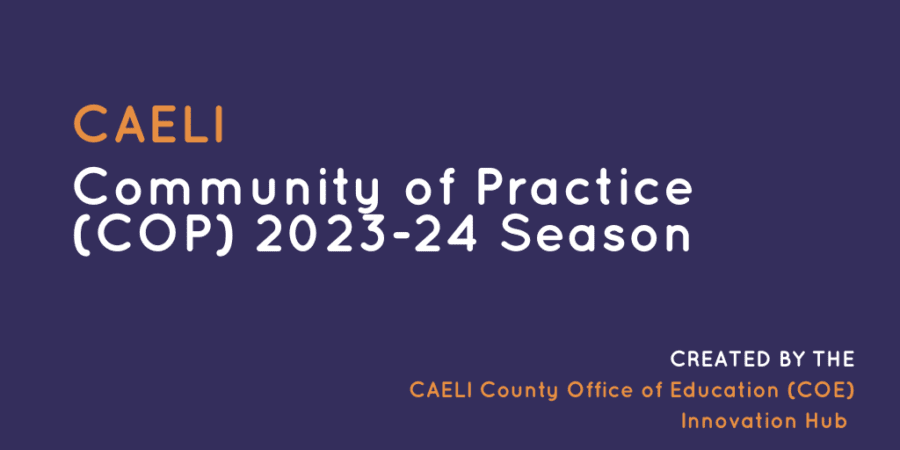
CAELI County Office of Education (COE) Innovation Hub Community of Practice (COP) 2023-24 Season: This community of practice (COP) brings together staff from a variety of roles representing COEs across the state. Participants attend to share best practices and resources that address common issues related to expanding access to environmental literacy and sustainability education. Check out the flier and resources on the COE COP page.
Audiences: Administrators, Community-Based Partners
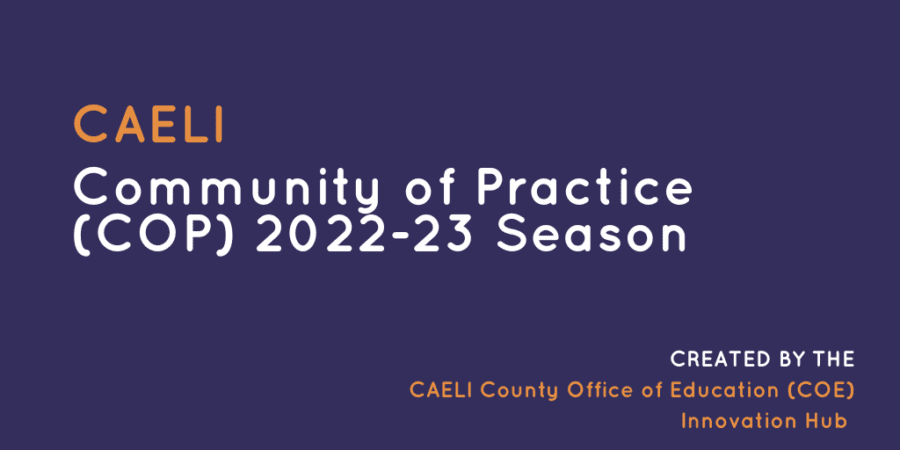
CAELI County Office of Education (COE) Innovation Hub Community of Practice (COP) 2022-23 Season: This statewide COP brought together COE staff from a variety of roles to discuss key topics and share best practices. This season included four meetings focused on key topics such as exploring the progress of environmental literacy in statewide initiatives, exploring opportunities for environmental literacy in expanded learning, leveraging youth engagement, and strategically engaging and supporting districts for environmental change initiatives. Check out recordings and resources on the COE COP page.
Audiences: Administrators, Community-Based Partners
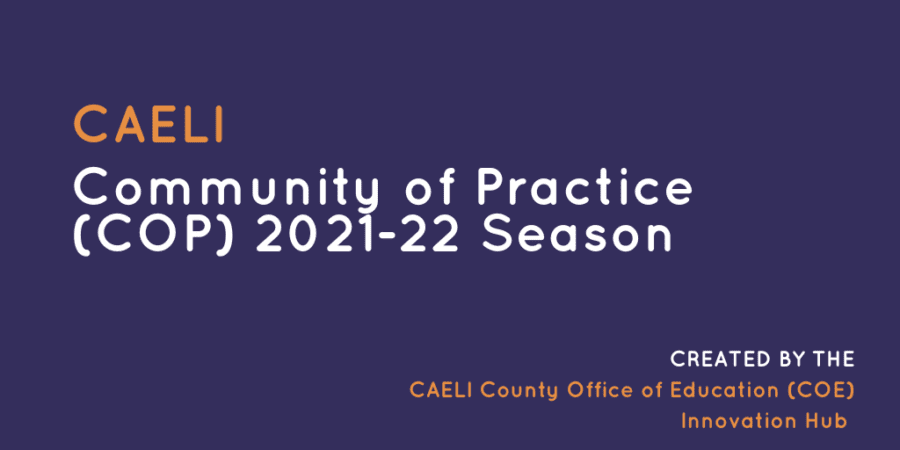
CAELI County Office of Education (COE) Innovation Hub Community of Practice (COP) 2021-22 Season: This statewide COP brought together COE staff from a variety of roles to discuss key topics and share best practices. This season included six meetings focused on key topics such as leading systemic change, community-based partner networks, curriculum and professional learning, sustainably and climate-resilient facilities and operations, funding, and youth engagement. Check out recordings and resources on the COE COP page.
Audiences: Administrators, Community-Based Partners
Programs
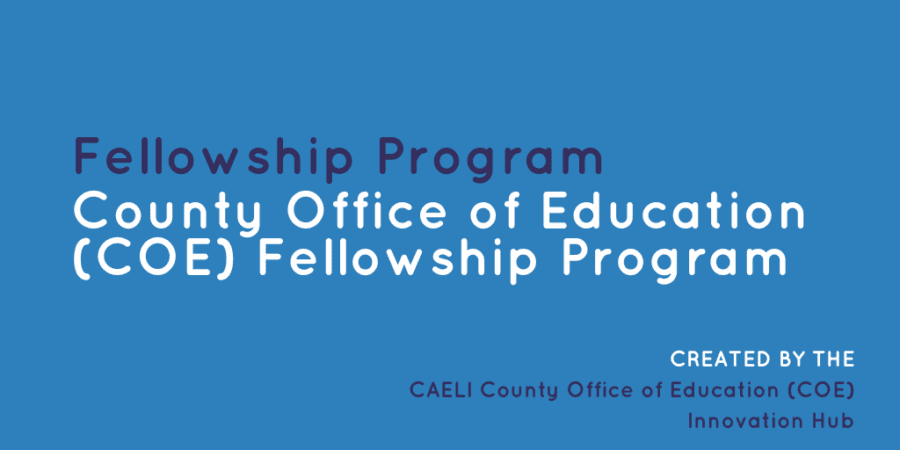
CAELI County Office of Education (COE) Fellowship Program: This program is designed for County Office of Education (COE) leaders who are ready to jump-start or deepen their efforts to lead a high-impact environmental literacy and sustainability initiative. Outcomes of this fellowship include each fellow drafting a 3-5 year vision, plan, and budget for their initiative and identifying actionable next steps for their first year. Fellows also have access to a toolkit of resources for supporting the launch and implementation of their initiative. Learn more here.
Audiences: Administrators, Community-Based Partners
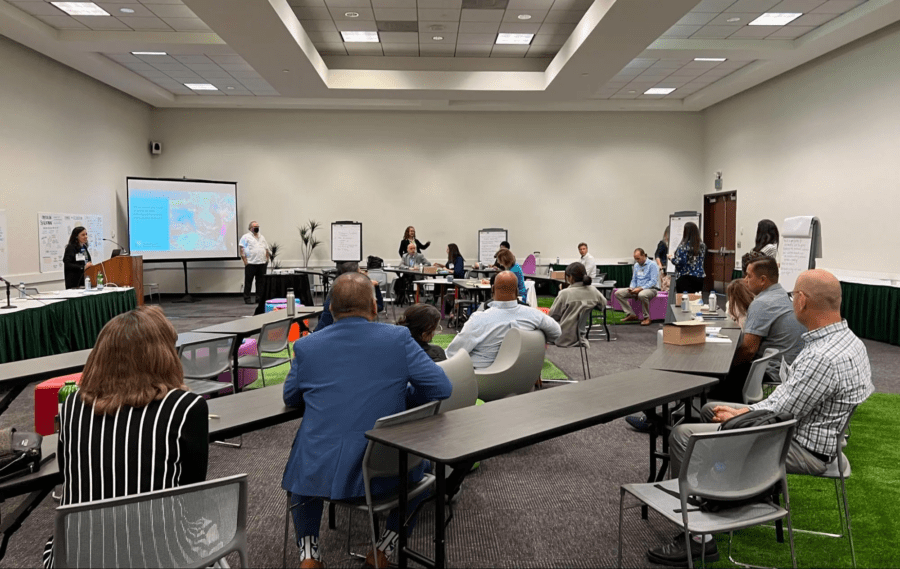
District Innovation Hub Green Schools Meet-Up: The CAELI District Innovation Hub coordinated a “Green Schools Meet-Up” networking event at the Green California Schools and Community Colleges Summit and Exposition. Learn more about the fall 2022 event here. The CAELI District Innovation Hub will be coordinating a similar event for the fall of 2023.
Audiences: Administrators, Teachers, Students, Community-Based Partners, Families
Toolkits and Advocacy Collaborations
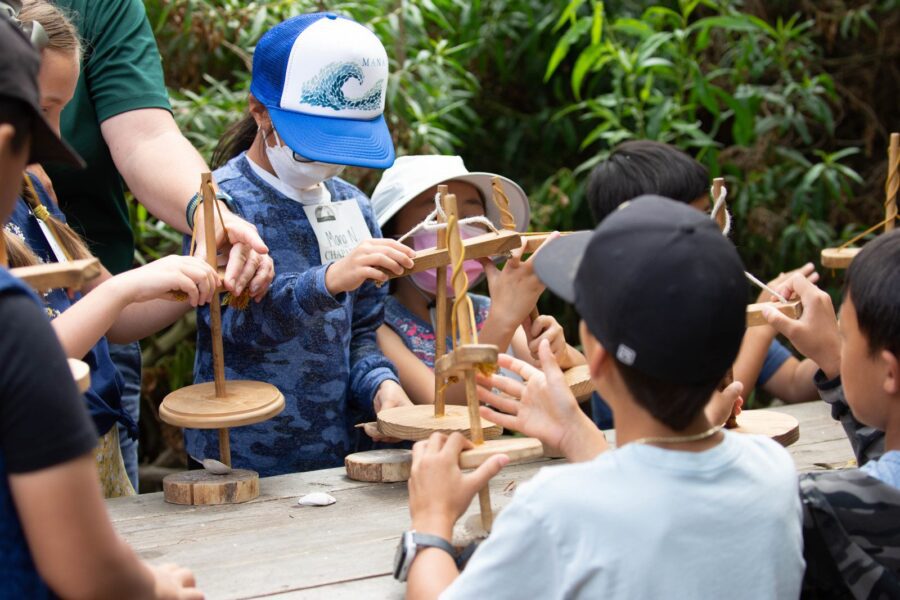
AB 185 Block Grant Ideas for Spending on Environmental Literacy (2022): In September of 2022, Governor Gavin Newsom approved AB 185, which revised the Arts, Music, and Instructional Materials Discretionary Block Grant that includes environmental literacy. Check out this guide that shows how constituents can advocate to their Local Education Agencies (LEAs) about including environmental literacy efforts as part of their spending plans for this block grant.
Audiences: Administrators, Teachers, Students, Community Based-Partners, Families

Community-Based Partner Network Toolkit (2022): This toolkit has been designed to help county offices of education, school districts, and community-based partners establish and maintain networks to expand environmental literacy within California’s TK–12 educational landscape. The toolkit includes sections on types of community-based partners and networks, guidance for networks at different stages, self-assessment rubrics, and more.
Audiences: Administrators, Community-Based Partners
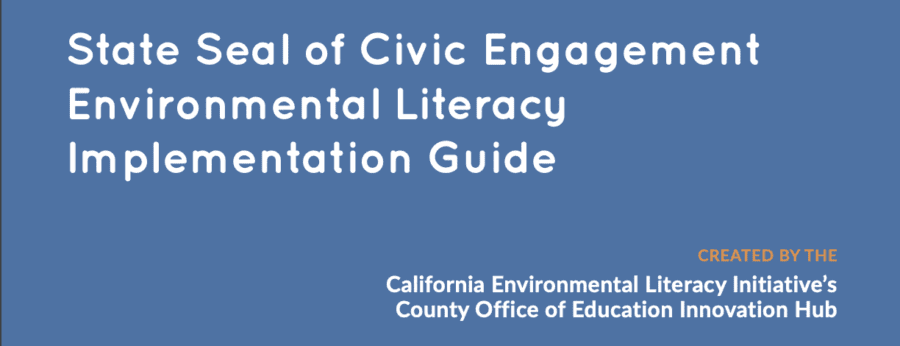
State Seal of Civic Engagement Environmental Literacy Implementation Guide (2022): In this guide, learn how the lens of environmental literacy can be used to support teachers, schools, and districts in implementing California’s State Seal of Civic Engagement. Find real-world examples and links to resources for each state criteria, including: academic achievement, civics knowledge, community action projects, and self-reflection.
Audiences: Administrators, Teachers
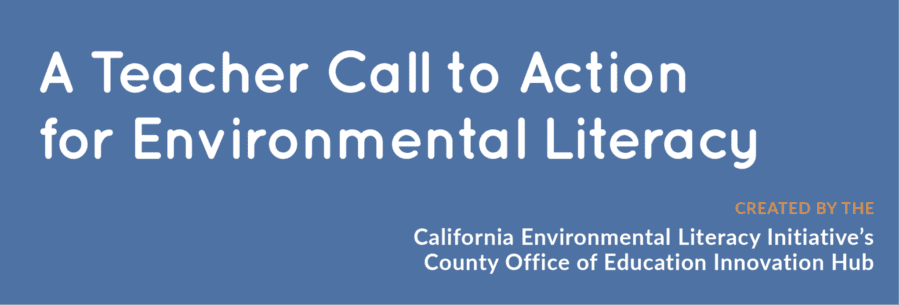
A Teacher Call to Action for Environmental Literacy (2022): This call to action is a three-part publication developed for educators by educators. “Part 1: The Imperatives for Environmental Literacy” defines the field and recounts its development in California. “Part 2: Voices from the Field” presents case studies of effective instruction at every grade level. “Part 3: Roadmap for Instruction” describes steps to increase environmental literacy integration. Discussion and reflection questions in each section will help move along your practice, individually or with your colleagues.
Audiences: Administrators, Teachers
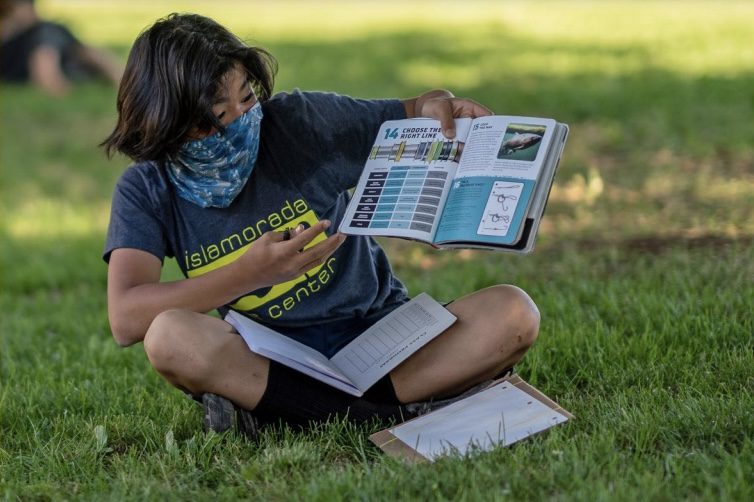
Outdoor Learning Guidance & Outdoor Learning Menus: The Lawrence Hall of Science Outdoor Learning Guidance provides tools for implementing outdoor learning to disrupt inequities from the pandemic, while The Lawrence Outdoor Learning Menus explore sustainable approaches and implementation to support students, provide professional learning for educators, and build capacity.
Audiences: Administrators, Teachers
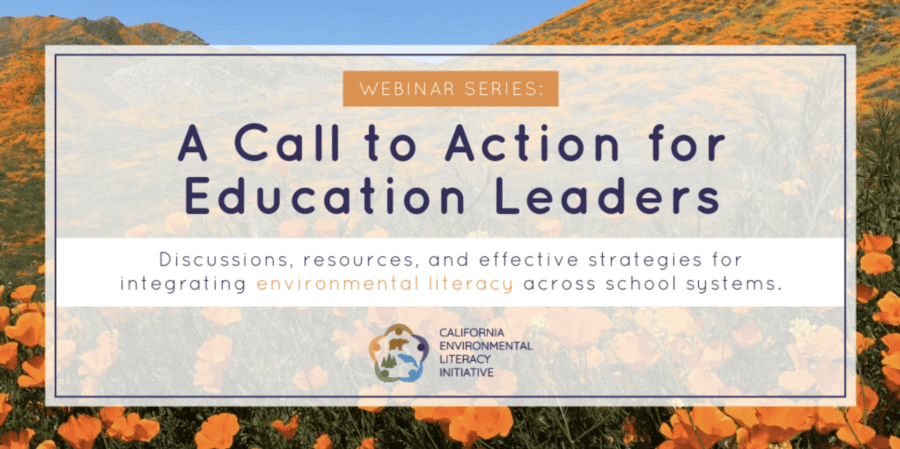
A Call to Action for Educational Leaders (2020): This call to action provides an introduction to how environmental literacy connects to the major accountability and framework systems for the California TK–12 education system (i.e., MTSS, the CA Dashboard and LCAP, standards and frameworks, etc.).
Audience: Administrators
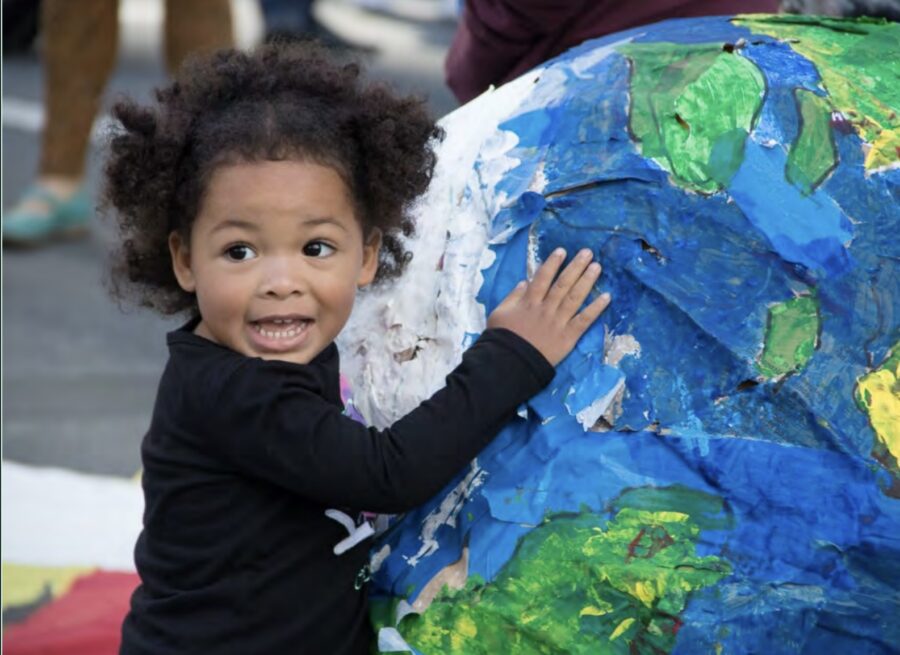
California Environmental Literacy Initiative: Thinking Through Environmental Justice in TK–12 Education: This report provides key takeaways from the California Subject Matter Project and CAELI’s partnership project to develop a deeper shared understanding and knowledge of environmental justice to better equip California TK–12 educators to teach the concept in their respective subject matters. The report includes key takeaways from the project, synthesis of interviews, and proposed action plans for educators integrating environmental justice into varying subjects.
Audiences: Administrators, Teachers, Community-Based Partners, Students, Families
Webinars
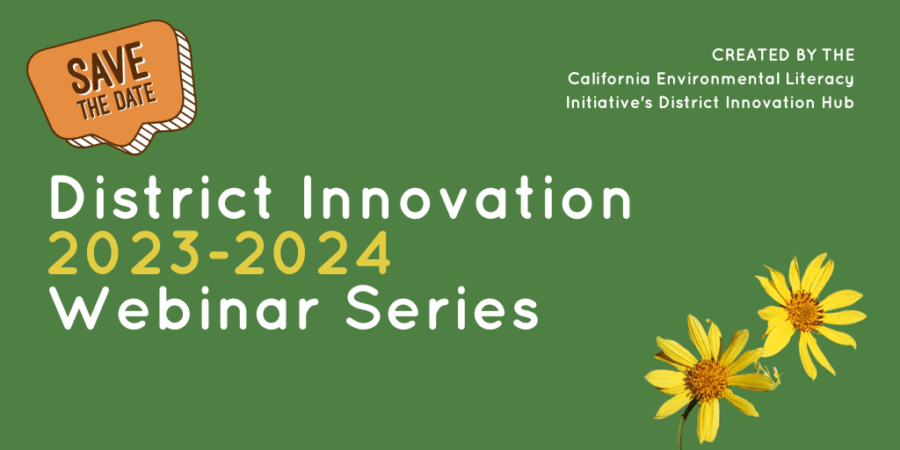
CAELI District Innovation 2023-24 Webinar Series: Join us for upcoming webinars showcasing the work of inspiring equity-focused leaders in environmental literacy and school sustainability. Help put vision into action through our interactive sessions. Our topics include troubleshooting challenges, responding to AB 285, school board leadership, and more.
Audiences: Administrators, Teachers, Students, Families, Community-Based Partners
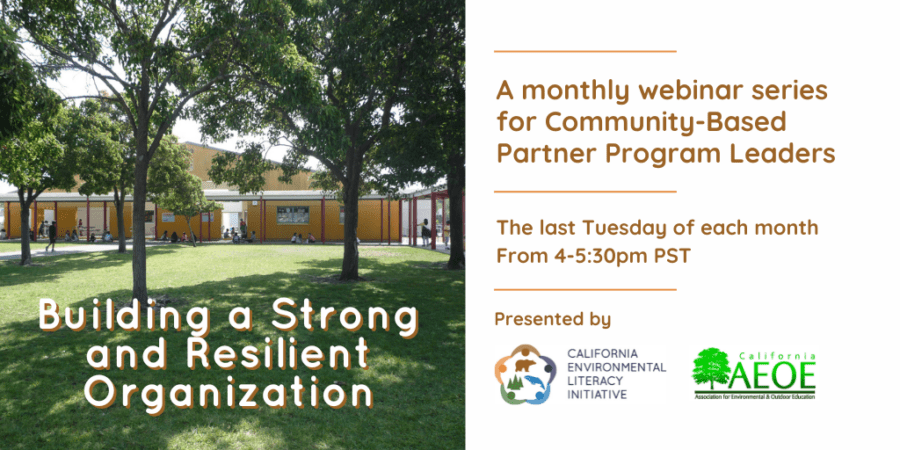
Building a Strong and Resilient Organization
Community-Based Partner Program Leaders
2023-24 Webinar Series: Join the California Environmental Literacy Initiative’s Community-Based Partner Innovation Hub and AEOE in an online webinar series for Program Leaders of organizations that work to advance environmental literacy. Learn valuable tips and strategies that will help your organization grow and thrive.
RSVP. Webinars are held on Tuesdays at 4:00-5:30 p.m.
Watch: Note that the webinars page includes links to past webinar recordings, slide decks, and additional resources.
Audiences: Administrators, Teachers, Students, Families, Community-Based Partners
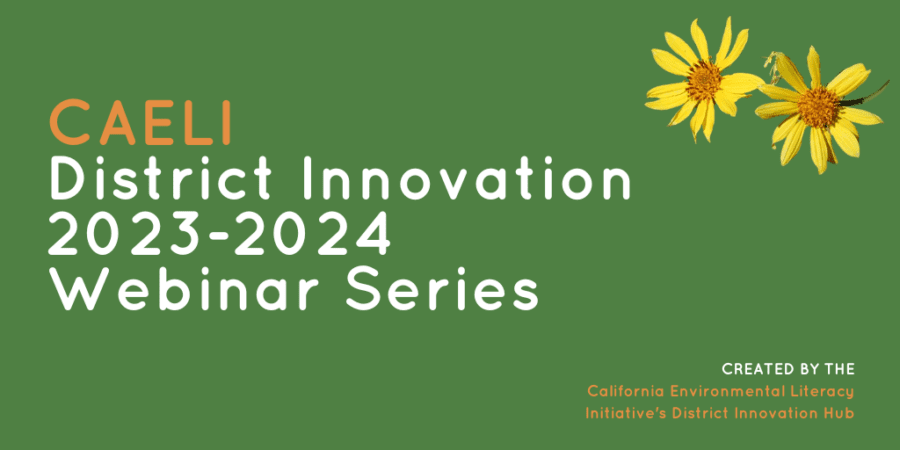
CAELI District Innovation 2022-23 Webinar Series: This interactive online series showcased the work of inspiring equity-focused leaders in environmental literacy and school sustainability. Featured districts included: Cabrillo Unified School District, Rialto Unified School District, Encinitas Union Elementary School District, Val Verde Unified School District, Fremont Unified School District, and Porterville Unified School District.
Watch: Note that the webinars page includes links to past webinar recordings, slide decks, and additional resources.
Audiences: Administrators, Teachers, Students, Families, Community-Based Partners
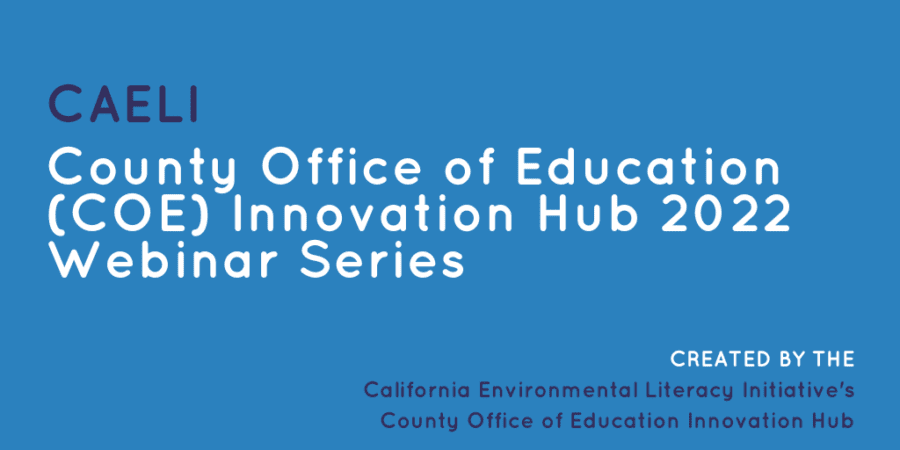
CAELI County Office of Education (COE) Innovation Hub 2022 Webinar Series: This webinar series featured an overview of a number of different tools and case students that were developed by the COE Innovation Hub for use in the field. Topics included: COE Leadership Case Studies, A Teacher Call to Action Toolkit, State Seal of Civic Engagement, and the Community-Based Partner (CBP) Network Toolkit. Note that the webinars page includes links to webinar video recordings, slide decks, and any additional webinar resources.
Audiences: Administrators, Teachers, Community-Based Partners
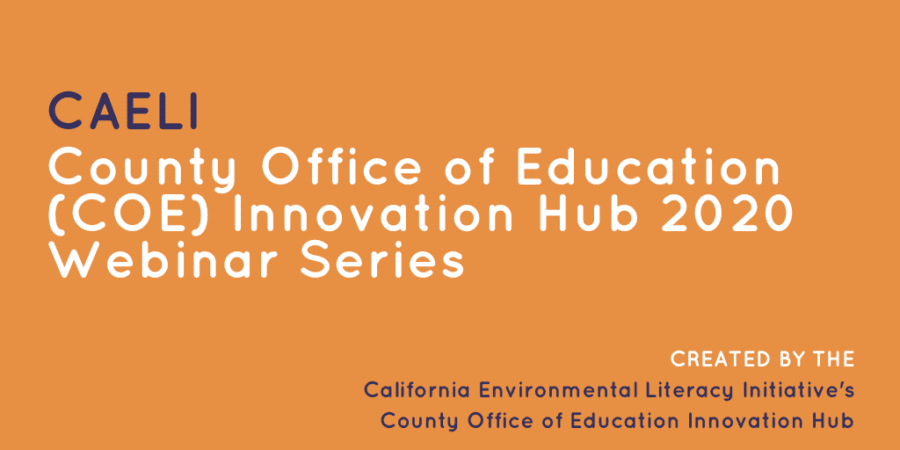
CAELI County Office of Education (COE) Innovation Hub 2020 Webinar Series: This webinar series featured an overview of a number of different tools and case studies that were developed by the COE Innovation Hub for use in the field. Topics included: A Call to Action Toolkit, Social and Emotional Learning with Environmental Literacy, Environmental Literacy for MTSS, LCAPP, Continuous Improvement, Community-Based Partnerships, and Standards and Frameworks for Environmental Literacy. Note that the webinars page includes links to webinar video recordings, slide decks, and any additional webinar resources.
Audiences: Administrators, Community-Based Partners
Other Important Resources
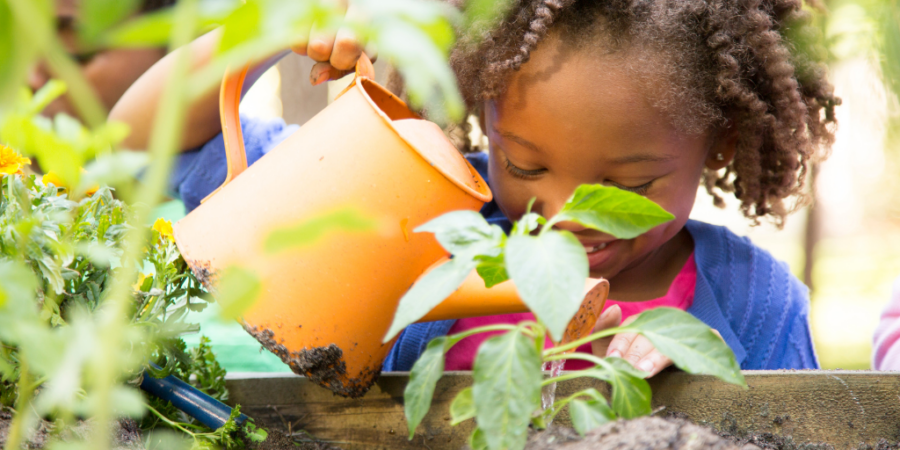
California’s Blueprint for Environmental Literacy (2015) lays out guiding principles and key strategies that support the goal of increasing environmental literacy for all California students.
Audiences: Administrators, Teachers, Students, Community-Based Partners, Families
